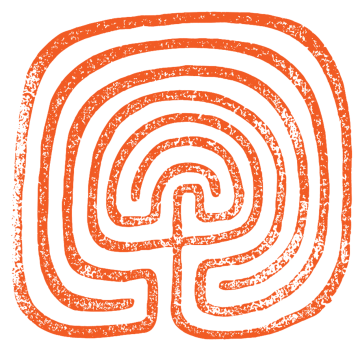Flowers in the Desert
Flowers in the Desert
Flowers in the Desert (2009) for clarinet, viola, and piano – 7’
–Commissioned by the Lake Champlain Chamber Music Festival
–Written for David Shifrin, Hsin-Yun Huang, Jeewon Park
Available for purchase as a digital download here.
Program Listing
Flowers in the Desert (2009)
I. Blue with all malice…
II. …I hear the irregular snap! snap!
III. Mille regretz de vous abandonner…
IV. …five more bullets
V. Oseh shalom bim’romav hu ya’aseh shalom…
Program Notes
Flowers in the Desert was inspired by a story I read in the news about a young man in Oklahoma named Antwun Parker who held up a drug store with a friend (Parker was unarmed). The pharmacist shot Parker in the head before the boys got anywhere in their attempt to rob the place and he chased Parker’s friend out of the door. The pharmacist then went behind the counter and got another gun, approached the unconscious Parker lying on the ground, and fired five more bullets into his stomach, which killed him. The pharmacist was indicted on murder charges, and what emerged was not communal grief about the killing, but an outpouring of sympathy for the shooter—on conservative talk shows, in the form of letters and emails, and in thousands of dollars in financial gifts to help with his legal fees. One person interviewed on the local news suggested that the druggist should have fired all five bullets into Parker’s head. It was this kind of collective rage—and my sadness in reading about it—that moved me to write this piece, coupled with the fact that I later read that Antwun Parker was sixteen years old, and his accomplice fourteen.
The work is divided into five short movements, each influenced by poetry or words that resonated with the subject matter. There are fragments from the wartime poetry of Wilfred Owen and Walt Whitman. There are words quoting from the original news story that inspired the music. The last movement—somewhat more expansive than the others—is framed by words from the Kaddish, a Jewish blessing for the dead. The piece is, essentially, a Requiem in chamber music form.
The first movement is largely a clarinet solo, wailing in the tradition of ancient mourning. The second is a short meditation on a single note, inspired by Whitman’s poetic description of bullets flying on the battlefields of the Civil War. The third movement is an arrangement of the melancholic song by Josquin “Milles Regretz,” an early Renaissance tune that was famous in its day. This song is the centerpiece of the work, and the music of the other four movements is derived from it. The fourth and fifth movement are attached—an aural description of the gun shots themselves, and the subsequent apotheosis of the victims. The music of the end rises toward something quiet and redemptive, reflecting my own hope for the memory of the departed.
Flowers in the Desert was commissioned for the inaugural season of the Lake Champlain Chamber Music Festival for David Shifrin, Hsin-Yun Huang, and Jeewon Park. It is dedicated to the festival, its musicians, staff, and audiences, with warm wishes for aninspired future.
Press
David Ludwig said he felt compelled to write “Flowers in the Desert” after reading a news article about Antwun Parker, an Oklahoma teenager shot to death as he and another teenager were attempting to rob a pharmacy. Mr. Ludwig derived his response from Josquin’s “Mille Regretz,” arranging that Renaissance lament for his central movement and surrounding it with evocative passages derived from its melodic material. Mr. Ludwig’s writing was resourceful and emotionally charged; the violist Hsin-Yun Huang, the clarinetist Benjamin Fingland and the pianist Stephen Gosling played with eloquence and passion. –New York Times
“David Ludwig’s delicately elegiac Flowers in the Desert opened the program in its world premiere performance, with violist Hsin-Yun Huang, clarinetist David Shifrin, and pianist Jeewon Park. The spare spaces of its sonic landscape prompted an audible audience exhale when the last, redemptive, prayer-like note decayed and floated plaintively to meet the the raised ceiling of the Elley Long Music Center.
Flowers’ feel and gently repeated note patterns reminded me of the understated beauty in Arvo Part’s Spiegel im Spiegel, though Flowers‘ inspiration is rooted in much weightier source material…Whatever your opinion on the facts of the incident, the senselessness, sheer brutality and fundamental human failure evident in every aspect of the situation are inarguable, and provide the potent departure point for Flowers’ fragile emotional center.” –World of Music
In contrast, you would’ve wanted to know, in this day and age, what those gun shots were doing near the end of David Ludwig’s excellent Flowers in the Desert. –Arts Journal Blogs
“The most intriguing work on the program was the first performance of “Flowers in the Desert” by David Ludwig…Ludwig based the toughly haunting five-movement, seven-minute work on an incident in which a man unnecessarily killed a boy robbing his store, was indicted for murder, but was treated as a hero. “Flowers” opens with a haunting lyrical clarinet against stark sounds from the viola and piano in the first movement, “Blue with all Malice.” It works through a series of vivid episodes that don’t so much describe the events as reflect them and the feeling they evoke. Although much of the harmonic language is complex, the work is accessible and compelling. Ludwig couldn’t have asked for more sympathetic performers. David Shifrin, one of the world’s finest clarinetists, was joined by violist Hsin-Yun Huang and pianist Jeewon Park.” –Times Argus


